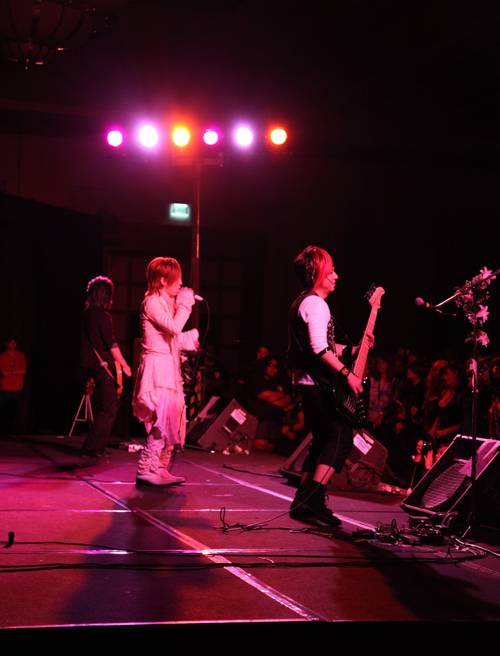
FAQ About The Role of Anime Soundtracks in Global Music Culture

What is an anime soundtrack?
An anime soundtrack is the collection of background music and songs used in an anime series or film. These soundtracks are designed to enhance the storytelling by conveying emotions, setting scenes, and giving depth to characters. Anime soundtracks can include orchestral scores, pop and rock songs, or electronic music, and are often composed by renowned musicians and composers specific to the anime industry.

How have anime soundtracks influenced global music culture?
Anime soundtracks have played a significant role in global music culture by introducing unique musical styles and compositions to a worldwide audience. By blending traditional Japanese music styles with international genres such as pop, rock, and electronic music, these soundtracks have attracted diverse audiences beyond anime fans. This crossover appeal has added to the increasing popularity of J-Pop and other Japanese musical forms globally.

Who are some notable composers of anime soundtracks?
Several composers have gained recognition for their contributions to anime soundtracks. Some of the most notable include Yoko Kanno, who is known for her work on 'Cowboy Bebop' and 'Ghost in the Shell: Stand Alone Complex,' Joe Hisaishi, famed for composing music for Studio Ghibli films such as 'Spirited Away,' and Hiroyuki Sawano, famous for scores in series like 'Attack on Titan.' These composers have played a pivotal role in the integration of anime music into the broader global music scene.

Why do people around the world listen to anime soundtracks?
People around the world listen to anime soundtracks for various reasons. While some enjoy the nostalgic and emotional connection to the anime series, others appreciate the unique fusion of musical styles and high-quality compositions. These soundtracks often stand out for their ability to encapsulate a wide range of emotions, making them appealing even to those who might not be anime viewers.

In what ways are anime soundtracks different from western cartoon soundtracks?
Anime soundtracks often differ from Western cartoon soundtracks in their musical complexity and emotional depth. While Western cartoons typically use music as a background element, anime soundtracks are often integral to the narrative, sometimes even influencing plot development. Additionally, anime music blends various cultural influences and often features more sophisticated compositions, aligning more closely with cinema than casual entertainment.

Are there any anime soundtracks that have won global music awards?
Yes, anime soundtracks have received global recognition and awards, though they are sometimes less mainstream due to the niche nature of anime. However, certain composers and soundtracks, such as Joe Hisaishi’s works for Studio Ghibli films, have received numerous accolades and have been performed in prestigious venues worldwide, showcasing their widespread appeal and impact on global music culture.

What role do anime opening and ending themes play in their popularity?
Anime opening and ending themes play crucial roles in the popularity and memorability of a series. These themes often capture the essence and mood of the anime, becoming synonymous with the show itself. They can become hit singles in their own right, often charting on music lists globally and contributing significantly to the sales of anime soundtracks. The popularity of opening and ending themes can also drive interest in the artists performing them, amplifying their global reach.

How do anime soundtracks influence other music genres?
Anime soundtracks have a notable influence on various music genres by introducing different musical scales, instruments, and compositional techniques. This influence can be seen in the blending of anime music with genres like pop, electronic, and orchestral music, inspiring both fans and musicians to explore these styles further. This cross-pollination enriches global music culture, making anime soundtracks a source of innovation for many artists outside of the anime industry.

Can non-Japanese music composers contribute to anime soundtracks?
Yes, non-Japanese composers can and do contribute to anime soundtracks. As the influence of anime grows globally, there is increasing collaboration between Japanese studios and international musicians. This inclusivity allows for a richer, more diverse sound that appeals to global audiences and reflects the fusion of different musical traditions.

What impact does the internet have on the spread of anime music globally?
The internet has had a profound impact on the spread of anime music globally by providing a platform for discovery and sharing. Streaming services and video-sharing platforms like Spotify, YouTube, and anime-specific sites allow fans worldwide to access and distribute anime soundtracks easily. Social media also helps build communities and connect fans, facilitating discussions about favorite soundtracks and making anime music more accessible and influential worldwide.

How do anime soundtracks contribute to the overall storytelling of a series?
Anime soundtracks contribute significantly to the storytelling of a series by enhancing emotional depth and setting the tone for various scenes. Well-composed soundtracks can intensify dramatic moments, underscore poignant character development, and help to create an immersive environment that draws viewers further into the narrative. The music can also symbolize themes and motifs important to the story, adding layers of meaning and engagement.

What elements make anime soundtracks distinct from other types of music?
Anime soundtracks are distinct for their wide-ranging musical styles and innovative compositions. They often blend traditional Japanese music with modern genres like rock, pop, and orchestral music, creating a unique sound. The emotional expressiveness and integration into storytelling also set them apart, as anime music isn't just background filler; it plays a crucial role in narrative and character development, making it an integral part of the anime experience.

How has digital streaming affected the popularity of anime soundtracks?
Digital streaming has greatly boosted the popularity of anime soundtracks by making them more accessible to a global audience. Platforms such as Spotify, Apple Music, and YouTube allow fans to easily find and listen to anime music, broadening the fan base beyond traditional anime viewers. This widespread access also encourages new listeners to explore anime music, contributing to its growing influence in global music culture.

Do anime soundtracks ever inspire live musical performances?
Yes, anime soundtracks often inspire live musical performances such as concerts and symphonies. These events can range from traditional orchestra performances of popular scores, to live rock and pop concerts featuring hit anime songs. Such performances are popular globally, drawing fans who wish to experience their favorite anime music live, and demonstrating the strong connection between anime and the world of music performance.

Why do anime soundtracks appeal to non-anime fans?
Anime soundtracks appeal to non-anime fans due to their high-quality compositions and the diverse range of music they offer, encompassing genres like orchestral, rock, pop, and electronic music. The emotional expressiveness and sometimes complex musical arrangements can attract music aficionados who might not necessarily watch anime, allowing these soundtracks to stand alone as impressive works of music.

How are anime soundtrack albums typically released?
Anime soundtrack albums are usually released alongside or shortly after an anime series or film, often available in both digital and physical formats. These albums may be exclusive to a particular anime project and can include the series' opening and ending themes, background scores, and other musical pieces featured throughout. Release strategies can vary; some soundtracks receive wide international distribution, while others might be more limited, particularly when it comes to physical copies.

What are some famous anime soundtracks that achieved international success?
Famous anime soundtracks that have achieved international success include Joe Hisaishi’s works for Studio Ghibli films like 'My Neighbor Totoro' and 'Spirited Away,' Yoko Kanno’s compositions for 'Cowboy Bebop,' and Shiro Sagisu’s music for 'Neon Genesis Evangelion.' These soundtracks are widely celebrated for their musical excellence and have been performed internationally, helping to elevate the status of anime music in global cultural contexts.

What aspects of anime production particularly benefit from strong soundtracks?
Anime production aspects that greatly benefit from strong soundtracks include emotional impact, scene setting, and character development. A well-composed soundtrack can enhance the emotional resonance of key scenes, such as dramatic confrontations or heartfelt moments, and help establish the setting and mood. Music supports visual storytelling, adding depth to a character’s journey and enriching the overall viewer experience.

How can composers balance traditional Japanese music with modern styles in anime soundtracks?
Composers balance traditional Japanese music with modern styles in anime soundtracks by skillfully blending elements of both to create a unique sound palette. This can be achieved through the incorporation of traditional instruments such as the shamisen or koto with contemporary sounds like synthesizers and electric guitars. Composers may also fuse traditional scales and melodies with modern harmonies, ensuring the music complements the anime’s themes and settings while appealing to a broad global audience.

How do anime musicians gain recognition outside of Japan?
Anime musicians gain recognition outside of Japan through several channels. Popular anime series and films provide international exposure, often leading to concert tours and collaborations with artists from other countries. Online platforms and social media also play crucial roles by allowing musicians to share their work with a global audience. Additionally, the growing popularity of anime conventions and music festivals that feature live performances of anime music helps increase their visibility internationally.
